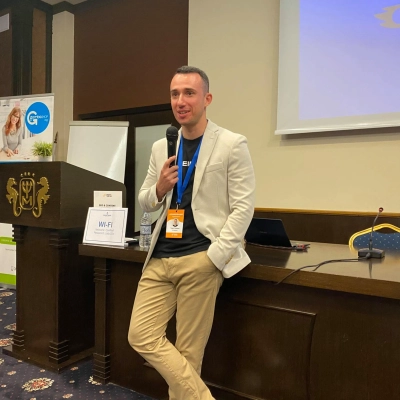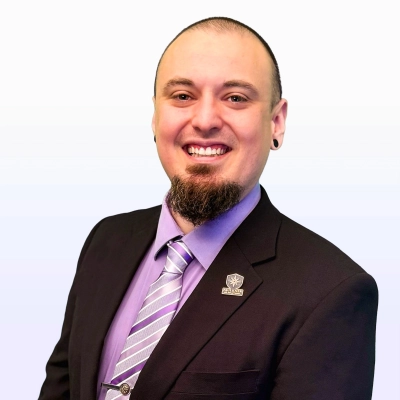How to Transition Into a New Career Field Through Creative Approaches
Career transitions require innovative strategies that can demonstrate your capabilities to potential employers. This article shares practical approaches from professionals who successfully changed fields through creative methods like portfolio development, skill transfer, and community engagement. Their experiences offer actionable insights for anyone looking to break into marketing, tech leadership, cybersecurity, UX design, or other fields requiring certification.
Built Personal Blog to Showcase Marketing Skills
One of the most creative career transitions I've seen was a client who moved from traditional sales into digital marketing. Instead of starting from scratch, they built a personal project, a niche blog, where they practiced SEO, content creation, and link building while documenting their process on LinkedIn. This not only helped them develop real, demonstrable skills but also built a small audience that showcased their expertise to potential employers. Within months, they leveraged that project as a portfolio, which made them stand out and ultimately landed them a marketing role without formal agency experience. It was a great reminder that creating your own opportunities can be the fastest way to break into a new field.
Georgi Todorov, Founder of Create & Grow

Leveraged Transferable Skills for Tech Leadership
I worked with a client who successfully transitioned from beauty marketing to founding a tech company focused on AI-powered job search. Their approach was grounded in identifying transferable skills - particularly their marketing expertise - which they applied to a completely different industry by learning to ask the right questions and build relationships with technical teams. Rather than starting from scratch, they focused on understanding core technical concepts and leveraging their existing strengths in collaboration and strategic thinking. This allowed them to effectively lead engineering teams despite not having a traditional technical background.

Embraced Community Support in Cybersecurity Journey
I recently worked with a client who successfully transitioned into cybersecurity by approaching it like learning to ride a motorcycle. They built a strong foundation through basic courses first, then gained practical experience through hands-on experimentation despite initial setbacks. What really accelerated their progress was actively engaging with the cybersecurity community, which provided valuable feedback and mentorship throughout their journey. Their persistence through early failures ultimately led to their successful career change.

Created Portfolio While Learning UX Design
I know someone who successfully transitioned from teaching to UX design by taking a strategic, step-by-step approach. While still working in education, they enrolled in short online courses and workshops to build foundational UX skills. To gain practical experience, they created a portfolio of small projects, volunteering to redesign websites for local nonprofits, which helped showcase their abilities.
Networking also played a big role! So they reached out to UX professionals for informational interviews and mentorship, learning more about the industry and how to leverage transferable skills. They emphasized their teaching experience, highlighting empathy, problem-solving, and communication, which translated effectively into UX work.
They applied for entry-level UX positions and internships, combining their portfolio with soft skills to stand out. By focusing on targeted learning, hands-on projects, and professional connections, this person made a smooth and successful career transition from teaching into UX design.

Documented Solutions Before Career Certification
The smartest career pivots start by proving you can already solve the problems the next role demands.
I watched a city employee move from public works into safety compliance by first documenting risks and proposing fixes in real time. That portfolio of solutions mattered more than any degree, and once paired with a short certification, mind you that the city paid for, it made the career shift stick.
Dr. Thomas W. Faulkner, SPHR, LSSBB


